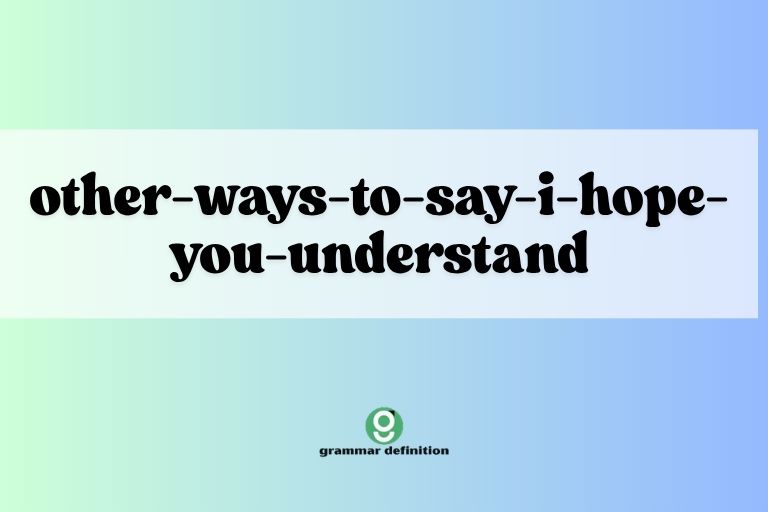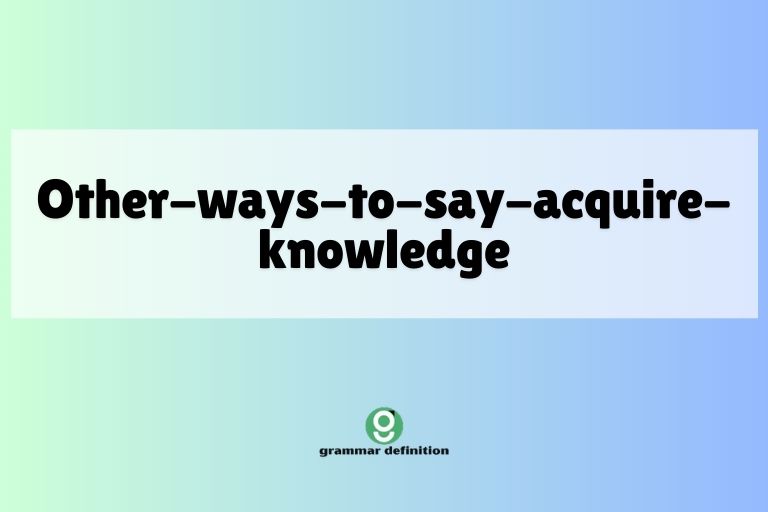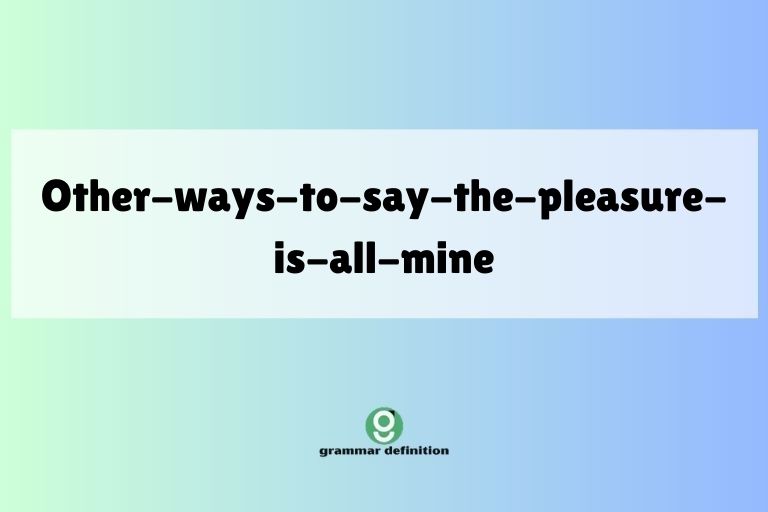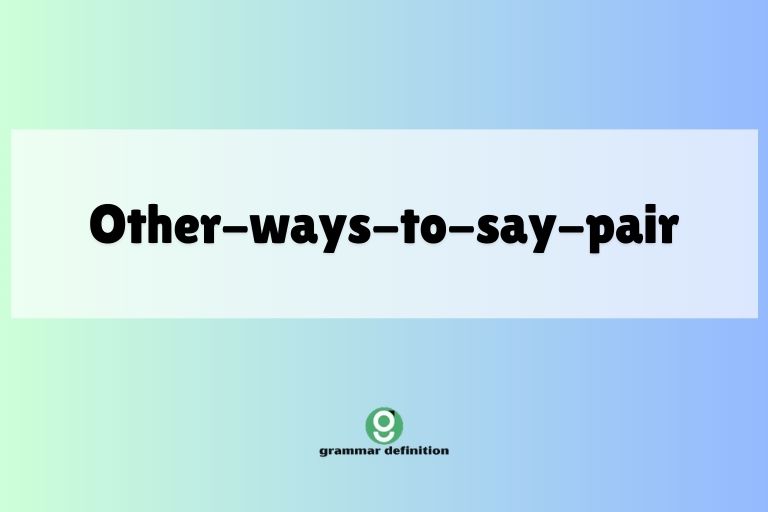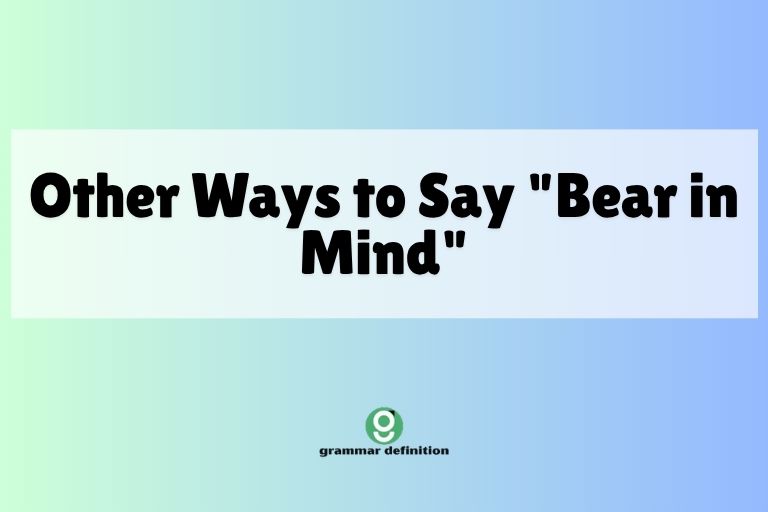Other Ways to Say “I Hope You’re Having a Great Week”

Expressing well wishes is a fundamental aspect of communication, fostering positive relationships and demonstrating empathy. While “I hope you’re having a great week” is a common and perfectly acceptable sentiment, exploring alternative phrases can enrich your vocabulary, add nuance to your messages, and make your interactions more engaging.
Understanding these alternatives not only enhances your communicative abilities but also provides a deeper appreciation for the subtleties of the English language. This article will delve into various ways to convey this sentiment, covering different contexts, levels of formality, and specific situations where each phrase might be most appropriate.
This guide will benefit anyone looking to diversify their language skills, from English language learners to native speakers seeking to refine their communication style.
Table of Contents
- Introduction
- Definition and Context
- Structural Breakdown
- Types and Categories
- Examples
- Usage Rules
- Common Mistakes
- Practice Exercises
- Advanced Topics
- FAQ
- Conclusion
Definition and Context
The phrase “I hope you’re having a great week” is a polite expression of goodwill, wishing the recipient a positive and enjoyable experience throughout the week. It serves as a friendly closing or a warm addition to a conversation or message.
The sentiment behind the phrase is to express care and consideration for the other person’s well-being, hoping that their experiences during the week are pleasant and successful.
The phrase is generally categorized as an expression of goodwill and functions primarily as a closing remark or a conversational filler. It is typically used in both written and spoken communication. The context in which it’s used can range from casual interactions with friends and family to more formal exchanges with colleagues or acquaintances. The level of formality can be adjusted by choosing alternative phrases that better suit the specific situation.
Structural Breakdown
The basic structure of the phrase “I hope you’re having a great week” can be broken down into the following components:
- I hope: This is the introductory clause expressing the speaker’s desire.
- you’re having: This is the present continuous tense of the verb “to have,” indicating an ongoing experience.
- a great week: This is the object of the verb “having,” specifying the desired quality of the week.
The structure is relatively simple and straightforward, making it easy to understand and use. However, variations can be introduced by changing the verb tense, modifying the adjective (“great”), or altering the object (“week”).
For example, “I hope you have a wonderful week” uses the simple present tense and a different adjective, while “I hope this week treats you well” uses a more metaphorical phrasing.
Types and Categories
There are many ways to express the sentiment of “I hope you’re having a great week,” each with its own nuance and level of formality. Here are some broad categories and specific examples:
General Well Wishes
These are phrases that convey a general sense of goodwill and positive wishes for the week ahead.
- Have a fantastic week!
- Wishing you a wonderful week.
- Hope your week is going well.
- All the best for the week ahead.
- Have a good one! (Informal)
Specific Activities
These phrases focus on specific activities or events that the recipient might be involved in during the week.
- Hope your meetings go smoothly this week.
- Wishing you success in your presentations this week.
- Hope your training this week goes well.
- Hope you have a productive week at work.
- Enjoy your vacation this week!
Formal Settings
These phrases are suitable for professional or formal interactions, maintaining a respectful and polite tone.
- I trust you are having a productive week.
- I hope this week is proving to be successful for you.
- Wishing you all the best in your endeavors this week.
- May this week bring you success and fulfillment.
- I hope you find this week to be rewarding.
Informal Settings
These phrases are appropriate for casual conversations with friends, family, or close colleagues.
- Hope you’re having a blast this week!
- Have an awesome week!
- Hope your week rocks!
- Wishing you sunshine and smiles all week long.
- Hope you’re crushing it this week!
Encouragement and Support
These phrases offer encouragement and support, particularly if the recipient is facing challenges or difficulties.
- Hope you’re staying strong this week.
- Wishing you strength and resilience this week.
- Hope you’re finding moments of peace this week.
- Sending positive vibes your way for the week ahead.
- Hope you’re taking care of yourself this week.
Examples
Here are some examples of alternative phrases, categorized by their level of formality and context.
Table 1: General Well Wishes
This table presents various ways to offer general well wishes for the week, suitable for a wide range of contexts.
| Phrase | Context | Example Sentence |
|---|---|---|
| Have a great week! | General | “It was nice talking to you. Have a great week!” |
| Wishing you a wonderful week. | General | “Wishing you a wonderful week filled with joy and laughter.” |
| Hope your week is going well. | General | “Just checking in to see if your week is going well.” |
| All the best for the week ahead. | General | “Thank you for your help. All the best for the week ahead.” |
| Have a good one! | Informal | “See you later! Have a good one!” |
| Hope you have a productive week. | Professional | “Hope you have a productive week and achieve your goals.” |
| Wishing you a successful week. | Professional | “Wishing you a successful week in your new role.” |
| Hope you enjoy your week. | General | “I’m glad we caught up. Hope you enjoy your week.” |
| Have a fantastic week ahead. | General | “Thank you for the meeting. Have a fantastic week ahead.” |
| Wishing you a pleasant week. | General | “It was a pleasure working with you. Wishing you a pleasant week.” |
| Hope you are having a good week so far. | General | “Hope you are having a good week so far, despite the weather.” |
| Wishing you well this week. | General | “Wishing you well this week in your endeavors.” |
| Have a wonderful week ahead. | General | “Thanks for your time. Have a wonderful week ahead.” |
| Hope everything goes well for you this week. | General | “I know you have a lot on your plate. Hope everything goes well for you this week.” |
| Wishing you a great start to the week. | General | “Wishing you a great start to the week and a successful journey.” |
| Have a blessed week. | General (Religious) | “It was nice seeing you. Have a blessed week.” |
| Hope you have a fulfilling week. | General | “Hope you have a fulfilling week, full of meaningful experiences.” |
| Wishing you the best for the week. | General | “Wishing you the best for the week and good luck with your project.” |
| Have a safe and happy week. | General | “Travel safely. Have a safe and happy week.” |
| Hope you make the most of your week. | General | “Hope you make the most of your week and achieve your goals.” |
| Wishing you a bright and cheerful week. | General | “Wishing you a bright and cheerful week, filled with positive moments.” |
| Have a super week! | Informal | “Catch you later! Have a super week!” |
| Hope you have a relaxing week. | General | “After all your hard work, hope you have a relaxing week.” |
| Wishing you a smooth and easy week. | General | “Wishing you a smooth and easy week, without any unnecessary stress.” |
| Have a great week, and stay safe. | General | “Have a great week, and stay safe during your travels.” |
Table 2: Specific Activities
This table provides phrases tailored to specific activities or events the recipient may be engaged in during the week.
| Phrase | Context | Example Sentence |
|---|---|---|
| Hope your meeting goes well this week. | Professional | “Hope your meeting goes well this week and you secure the deal.” |
| Wishing you success in your presentation this week. | Professional | “Wishing you success in your presentation this week; I’m sure you’ll do great.” |
| Hope your training this week goes well. | Professional | “Hope your training this week goes well and you learn a lot.” |
| Hope you have a productive week at work. | Professional | “Hope you have a productive week at work and meet all your deadlines.” |
| Enjoy your vacation this week! | Personal | “Enjoy your vacation this week! I hope you have a relaxing time.” |
| Hope your interviews go smoothly this week. | Professional | “Hope your interviews go smoothly this week and you find the right candidate.” |
| Wishing you the best in your exams this week. | Academic | “Wishing you the best in your exams this week; study hard and stay confident.” |
| Hope you have a successful launch this week. | Professional | “Hope you have a successful launch this week and the product is well-received.” |
| Wishing you a great conference this week. | Professional | “Wishing you a great conference this week and valuable networking opportunities.” |
| Hope your trip is enjoyable this week. | Personal | “Hope your trip is enjoyable this week and you create lasting memories.” |
| Wishing you a fruitful workshop this week. | Professional/Academic | “Wishing you a fruitful workshop this week, full of learning and collaboration.” |
| Hope your surgery goes well this week. | Personal | “Hope your surgery goes well this week, and you have a speedy recovery.” |
| Wishing you the best in your competition this week. | Personal | “Wishing you the best in your competition this week; give it your all!” |
| Hope you have a relaxing retreat this week. | Personal | “Hope you have a relaxing retreat this week and recharge your batteries.” |
| Wishing you a wonderful performance this week. | Personal | “Wishing you a wonderful performance this week; break a leg!” |
| Hope your negotiations go favorably this week. | Professional | “Hope your negotiations go favorably this week and you reach a beneficial agreement.” |
| Wishing you success in your fundraising efforts this week. | Professional/Community | “Wishing you success in your fundraising efforts this week for a great cause.” |
| Hope your project is completed successfully this week. | Professional | “Hope your project is completed successfully this week and meets all requirements.” |
| Wishing you a positive outcome in your court case this week. | Personal | “Wishing you a positive outcome in your court case this week; stay strong.” |
| Hope your renovation project progresses well this week. | Personal | “Hope your renovation project progresses well this week and you see great results.” |
| Wishing you a successful campaign this week. | Professional/Political | “Wishing you a successful campaign this week and a positive election outcome.” |
| Hope your research yields significant results this week. | Academic | “Hope your research yields significant results this week and advances the field.” |
| Wishing you a productive writing retreat this week. | Academic/Personal | “Wishing you a productive writing retreat this week and significant progress on your book.” |
| Hope your family reunion is enjoyable this week. | Personal | “Hope your family reunion is enjoyable this week and you reconnect with loved ones.” |
Table 3: Formal and Informal Settings
This table shows how the same sentiment can be expressed in both formal and informal contexts, demonstrating the importance of adapting your language to the specific situation.
| Context | Phrase | Example Sentence |
|---|---|---|
| Formal | I trust you are having a productive week. | “Dear Mr. Smith, I trust you are having a productive week and that the new initiatives are progressing as planned.” |
| Informal | Hope you’re having a blast this week! | “Hey Sarah, hope you’re having a blast this week! Let’s catch up soon.” |
| Formal | I hope this week is proving to be successful for you. | “Dear Dr. Johnson, I hope this week is proving to be successful for you in achieving your research goals.” |
| Informal | Have an awesome week! | “See you later, Mark! Have an awesome week!” |
| Formal | Wishing you all the best in your endeavors this week. | “Wishing you all the best in your endeavors this week as you navigate the challenges of the project.” |
| Informal | Hope your week rocks! | “Take care, Emily! Hope your week rocks!” |
| Formal | May this week bring you success and fulfillment. | “May this week bring you success and fulfillment in your professional aspirations.” |
| Informal | Wishing you sunshine and smiles all week long. | “Good luck with everything, Lisa! Wishing you sunshine and smiles all week long.” |
| Formal | I hope you find this week to be rewarding. | “I hope you find this week to be rewarding as you contribute to the team’s objectives.” |
| Informal | Hope you’re crushing it this week! | “Go get ’em, David! Hope you’re crushing it this week!” |
| Formal | I hope you are experiencing a fruitful week. | “Dear Director, I hope you are experiencing a fruitful week in your efforts to expand the company.” |
| Informal | Hope you’re having a good one this week! | “Bye for now! Hope you’re having a good one this week!” |
| Formal | Wishing you continued success throughout the week. | “Wishing you continued success throughout the week in your ongoing projects.” |
| Informal | Have a fantastic week, dude! | “Later, man! Have a fantastic week, dude!” |
| Formal | I trust you will have a productive week ahead. | “I trust you will have a productive week ahead as you address the important matters at hand.” |
| Informal | Hope you’re killing it this week! | “Rock on! Hope you’re killing it this week!” |
| Formal | May your week be filled with positive developments. | “May your week be filled with positive developments in your endeavors.” |
| Informal | Have a stellar week! | “See ya! Have a stellar week!” |
| Formal | I extend my best wishes for a successful week. | “I extend my best wishes for a successful week as you navigate the complexities of the project.” |
| Informal | Hope you’re having an awesome time this week! | “Have fun! Hope you’re having an awesome time this week!” |
Table 4: Encouragement and Support
This table presents phrases that offer encouragement and support, particularly useful when the recipient might be facing challenges.
| Phrase | Context | Example Sentence |
|---|---|---|
| Hope you’re staying strong this week. | Personal | “I know things are tough right now. Hope you’re staying strong this week.” |
| Wishing you strength and resilience this week. | Personal | “Wishing you strength and resilience this week as you navigate these difficult times.” |
| Hope you’re finding moments of peace this week. | Personal | “Remember to take breaks. Hope you’re finding moments of peace this week.” |
| Sending positive vibes your way for the week ahead. | Personal | “Sending positive vibes your way for the week ahead; you’ve got this!” |
| Hope you’re taking care of yourself this week. | Personal | “Don’t forget to prioritize self-care. Hope you’re taking care of yourself this week.” |
| Wishing you the courage to face any challenges this week. | Personal | “Wishing you the courage to face any challenges this week; I believe in you.” |
| Hope you find the strength to overcome any obstacles this week. | Personal | “Hope you find the strength to overcome any obstacles this week; you’re not alone.” |
| Sending you encouragement for a brighter week ahead. | Personal | “Sending you encouragement for a brighter week ahead; better days are coming.” |
| Hope you find some small joys in your week. | Personal | “Even in tough times, hope you find some small joys in your week.” |
| Wishing you perseverance in your endeavors this week. | Personal/Professional | “Wishing you perseverance in your endeavors this week; your hard work will pay off.” |
| Hope you’re surrounded by support this week. | Personal | “Hope you’re surrounded by support this week; don’t hesitate to reach out.” |
| Wishing you patience and understanding this week. | Personal | “Wishing you patience and understanding this week as you deal with these issues.” |
| Hope you’re able to find moments of calm this week. | Personal | “Amidst the chaos, hope you’re able to find moments of calm this week.” |
| Sending you strength to get through the week. | Personal | “Sending you strength to get through the week; remember, you’re resilient.” |
| Hope you’re feeling loved and supported this week. | Personal | “Hope you’re feeling loved and supported this week; you matter.” |
| Wishing you a week of small victories. | Personal | “Wishing you a week of small victories; every step forward counts.” |
| Hope you’re being kind to yourself this week. | Personal | “Remember to be gentle with yourself. Hope you’re being kind to yourself this week.” |
| Sending you positive thoughts for a better week. | Personal | “Sending you positive thoughts for a better week; keep your chin up.” |
| Hope you find moments of happiness this week. | Personal | “Even in difficult times, hope you find moments of happiness this week.” |
| Wishing you peace of mind this week. | Personal | “Wishing you peace of mind this week; take things one day at a time.” |
Usage Rules
When choosing an alternative phrase, consider the following usage rules:
- Formality: Select a phrase that aligns with the level of formality of the situation. Avoid overly casual language in professional settings.
- Context: Tailor your phrase to the specific context. If you know the recipient has a presentation, mention it specifically.
- Relationship: Choose a phrase that reflects your relationship with the recipient. More personal phrases are suitable for close friends and family.
- Sincerity: Ensure that your expression is genuine and heartfelt. People can often detect insincerity.
- Tone: Maintain a positive and uplifting tone. Avoid phrases that might sound sarcastic or condescending.
Common Mistakes
Here are some common mistakes to avoid when using alternative phrases:
- Using overly formal language in informal settings: This can sound stiff and unnatural.
- Using overly casual language in formal settings: This can be perceived as disrespectful or unprofessional.
- Misusing idioms or slang: Ensure that you understand the meaning and context of any idioms or slang you use.
- Being insincere: If you don’t genuinely mean what you’re saying, it’s better to stick to a simple “Have a great week.”
- Ignoring the context: Failing to tailor your phrase to the specific situation can make it sound generic and impersonal.
Table 5: Correct vs. Incorrect Examples
This table highlights common mistakes and provides corrected versions to illustrate proper usage.
| Incorrect | Correct | Explanation |
|---|---|---|
| “Hope you crush it at the board meeting, Mr. Smith!” | “I hope your board meeting is successful, Mr. Smith.” | Using overly casual language in a formal setting. |
| “I trust you are having a totally awesome week, dude!” | “Have a great week!” | Using overly formal language in an informal setting. |
| “Hope you don’t have a terrible week!” | “Hope you have a great week!” | Maintaining a positive and uplifting tone. |
| “Wishing you success in failing miserably this week.” | “Wishing you success in your endeavors this week.” | Avoiding sarcasm and negativity. |
| “Hope you survive the week.” | “Hope you have a good week.” | Using positive and encouraging language. |
| “May your week be as awful as possible.” | “May your week be filled with positive experiences.” | Avoiding negative sentiment. |
| “Have a week, I guess.” | “Have a great week!” | Expressing sincerity and goodwill. |
| “Wishing you the worst for the week.” | “Wishing you the best for the week.” | Using positive and kind language. |
| “Hope you don’t encounter any problems this week.” | “Hope you have a smooth and easy week.” | Focusing on positive outcomes. |
| “May your week be full of stress and anxiety.” | “May your week be filled with peace and relaxation.” | Promoting positive well-being. |
Practice Exercises
Test your understanding with these practice exercises. Choose the best alternative phrase for each scenario.
Exercise 1: Choose the Best Alternative
Read each scenario and select the most appropriate phrase from the multiple-choice options.
| Question | Option A | Option B | Option C | Answer |
|---|---|---|---|---|
| You’re emailing a close friend. | “I trust you are having a productive week.” | “Hope you’re having a blast this week!” | “Wishing you all the best in your endeavors this week.” | B |
| You’re speaking to your boss. | “Have a good one!” | “I hope you’re crushing it this week!” | “I hope this week is proving to be successful for you.” | C |
| You know someone is facing a difficult situation. | “Have a great week!” | “Hope you’re staying strong this week.” | “Have an awesome week!” | B |
| You’re writing a thank-you note to a colleague. | “Hope your week rocks!” | “Wishing you all the best for the week ahead.” | “Have a good one!” | B |
| You’re chatting with a family member. | “I trust you are having a productive week.” | “Wishing you sunshine and smiles all week long.” | “May this week bring you success and fulfillment.” | B |
| You know someone has a big presentation. | “Have a great week!” | “Wishing you success in your presentation this week.” | “Hope you’re having a blast this week!” | B |
| You’re talking to a client. | “Hope you’re having a blast!” | “I hope you find this week to be rewarding.” | “Have a good one!” | B |
| You know someone is going on vacation. | “Hope you’re staying strong this week!” | “Enjoy your vacation this week!” | “I trust you are having a productive week.” | B |
| You’re writing to a potential business partner. | “Have a good one!” | “Wishing you a wonderful week.” | “Hope you’re crushing it!” | B |
| You’re talking to a student before exams. | “Wishing you the best in your exams this week.” | “Have a great week!” | “Hope you’re having a blast this week!” | A |
Exercise 2: Fill in the Blanks
Complete the sentences with an appropriate alternative phrase.
| Question | Answer |
|---|---|
| “Dear Mr. Jones, ____________________ as you launch the new product.” | “Wishing you a successful week” |
| “Hey Sarah, ____________________! Let’s grab coffee soon.” | “Hope you’re having a great week” |
| “I know things are tough, but ____________________.” | “Hope you’re staying strong this week” |
| “Thank you for your help. ____________________.” | “All the best for the week ahead” |
| “Hi Mom, ____________________! Love you.” | “Wishing you sunshine and smiles all week long” |
| “I heard you have a big presentation. ____________________!” | “Wishing you success in your presentation this week” |
| “Dear Client, ____________________, and we look forward to our continued partnership.” | “I hope you find this week to be rewarding” |
| “Have a safe trip! ____________________!” | “Enjoy your vacation this week” |
| “As you embark on this new venture, ____________________.” | “Wishing you a wonderful week” |
| “Study hard and ____________________!” | “Wishing you the best in your exams this week” |
Advanced Topics
For advanced learners, consider exploring the nuances of regional variations in expressions of goodwill. For example, some phrases might be more common in British English than in American English.
Additionally, delve into the cultural implications of expressing well wishes, as different cultures may have different customs and expectations. Learning about the etymology of certain phrases can also provide a deeper understanding of their meaning and usage.
Furthermore, consider the impact of technology on these expressions. With the rise of digital communication, the use of emojis and GIFs has become increasingly common.
Understanding how to effectively incorporate these elements into your messages can enhance your communication and create a more engaging experience for the recipient. However, it’s important to use them appropriately and avoid overuse, as they can sometimes be perceived as unprofessional or insincere.
FAQ
Here are some frequently asked questions about alternative ways to say “I hope you’re having a great week.”
- Is it always necessary to use an alternative phrase?
No, “I hope you’re having a great week” is perfectly acceptable in most situations. However, using alternative phrases can add variety and nuance to your communication, making it more engaging and personalized.
- How do I choose the right alternative phrase?
Consider the level of formality, the context of the situation, your relationship with the recipient, and your own personal style. Choose a phrase that feels natural and sincere.
- Are there any phrases I should avoid?
Avoid phrases that are overly casual in formal settings, or phrases that might sound sarcastic, insincere, or negative. Also, be mindful of cultural differences and avoid phrases that might be offensive or inappropriate in certain cultures.
- Can I use emojis in my expressions of goodwill?
Yes, emojis can be a fun and effective way to enhance your messages, particularly in informal settings. However, use them sparingly and appropriately, and avoid overuse in professional communication.
- How can I make my expressions of goodwill more personal?
Tailor your phrase to the specific context and mention something specific about the recipient’s activities or interests. This shows that you’re paying attention and that you care about their well-being.
- What if I don’t know what the recipient is doing this week?
In that case, stick to a general phrase such as “Have a great week” or “Wishing you all the best for the week ahead.” These phrases are versatile and appropriate for most situations.
- Is it okay to use slang in my expressions of goodwill?
It depends on your relationship with the recipient and the context of the situation. Slang can be appropriate in casual conversations with close friends, but it’s generally best to avoid it in formal or professional settings.
- Can I use these phrases in written communication?
Yes, these phrases are suitable for both written and spoken communication. Just be sure to adjust the level of formality to match the medium and the audience.
- Are there any regional differences in these expressions?
Yes, some phrases may be more common in certain regions or countries. For example, “Have a good one” is more common in North America than in other parts of the world. Be mindful of these regional differences when communicating with people from different backgrounds.
- What if I want to express sympathy instead of goodwill?
If the recipient is going through a difficult time, you might want to express sympathy instead of goodwill. In that case, you could say something like “I’m sorry to hear you’re having a tough week” or “I’m thinking of you this week.”
Conclusion
Mastering alternative ways to say “I hope you’re having a great week” enriches your communication skills and allows you to express genuine care and consideration in various contexts. By understanding the nuances of formality, context, and relationship, you can choose the most appropriate phrase to convey your well wishes effectively.
Whether you opt for a general expression of goodwill, a specific mention of an activity, or a message of encouragement and support, your thoughtful words can make a positive impact on the recipient’s day. Embrace the variety of language available and continue to refine your communication style to foster meaningful connections and positive interactions.

